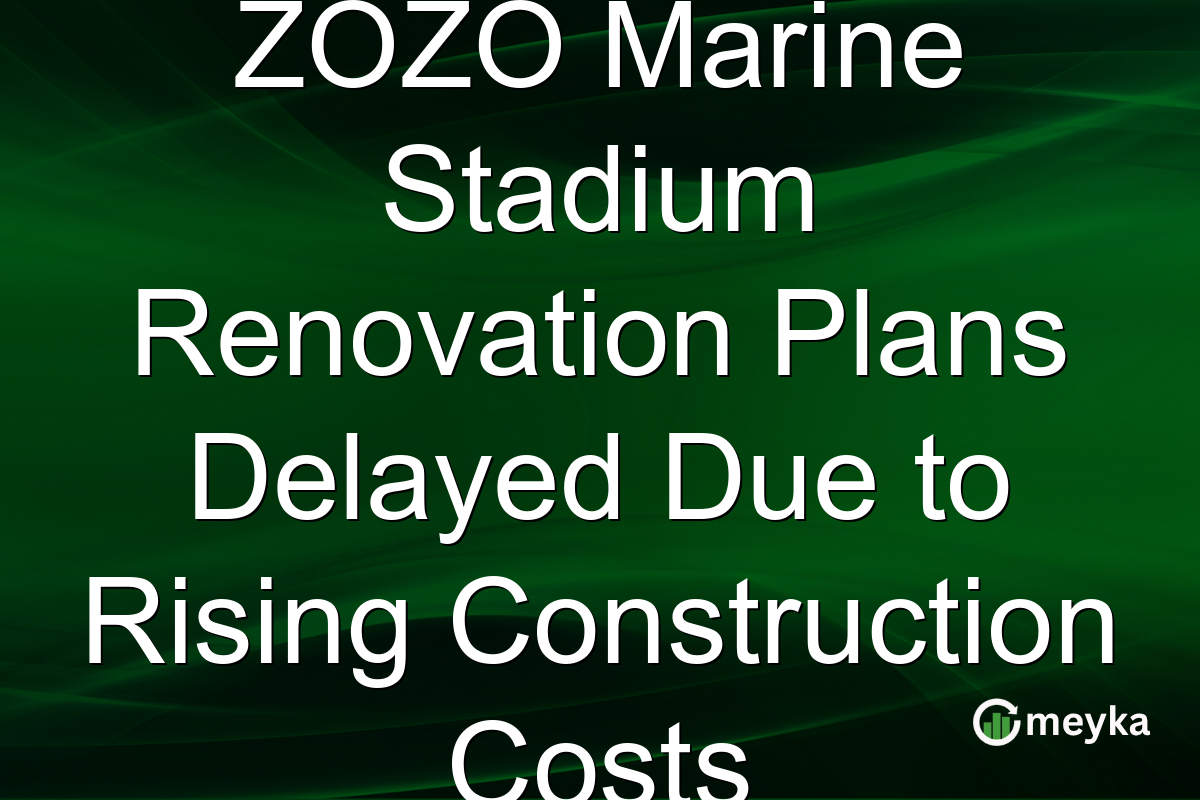ZOZO Marine Stadium Renovation Plans Delayed Due to Rising Construction Costs
Chiba City recently announced a delay in the renovation plans for the ZOZO Marine Stadium. The decision comes amid soaring construction material costs and a shortage of labor. The city has decided to postpone the formulation of the basic renovation concept until next year or beyond. In this article, we’ll explore the reasons behind this decision and what it means for the future development of the stadium.
Rising Construction Costs
The construction industry has seen significant price hikes in recent months. The cost of building materials such as steel and concrete has risen steeply, creating challenges across the sector. This is not an isolated issue; according to industry reports, there has been a global surge in prices due to increased demand and supply chain disruptions. For Chiba City, these rising costs make it financially viable to wait until the market stabilizes before proceeding with the ZOZO Marine Stadium renovations. By delaying the project’s initiation, the city hopes to avoid inflated expenses that could strain the budget. This strategic pause aligns with findings that numerous cities globally are facing similar issues with public infrastructure projects.
Labor Shortages Impacting Timelines
In addition to increased material costs, labor shortages are another significant factor. The construction industry in Japan has been grappling with a lack of skilled workers, partly due to an aging workforce and decreased interest among younger individuals. These labor shortages mean that even if the resources were financially feasible, timelines could stretch considerably, complicating logistics and project management. In turn, delayed start times could lead to extended construction durations, exacerbating budget concerns. Chiba City acknowledges that these factors heavily influenced the decision to postpone the ZOZO Marine Stadium renovation plans.
Future Planning and Basic Concept Formulation
The delay in the ZOZO Marine Stadium renovation is not merely a pause. Chiba City is using this time to reevaluate and strengthen its basic concept formulation. This process will involve a comprehensive review of current stadium usage, community needs, and future sports events that could be hosted at the venue. Taking this time allows for thorough planning and community engagement, ensuring that the final renovation blueprint aligns with both economic realities and public expectations. By focusing on strategic long-term planning, Chiba City aims to ensure that when the project does commence, it will meet future needs efficiently and sustainably.
Impact on Chiba City’s Development Vision
The postponement of the stadium renovation impacts broader urban development plans in Chiba. The ZOZO Marine Stadium holds a prominent role in the city’s vision for becoming a sports hub. Delaying its revamp may slow some milestones within these plans, but it also opens opportunities for reassessing priorities. The city can now allocate resources to other critical projects or use this period to secure better contracts and partnerships. Establishing a robust foundation before diving into major structural changes helps mitigate risks and empowers more holistic urban growth strategies.
Final Thoughts
The decision to delay the ZOZO Marine Stadium renovations reflects Chiba City’s pragmatic approach to handling economic challenges. By waiting for a more favorable economic environment and addressing pressing labor issues, the city is positioning itself for a more sustainable future. Utilizing this time for thoughtful planning ensures that once renovations begin, they will be efficiently executed and serve the community well. For continuous updates and in-depth financial insights, consider leveraging tools like Meyka to stay informed on market changes and development strategies.
FAQs
The renovation plans were delayed due to rising construction material costs and labor shortages, making it challenging to proceed under current conditions.
While the delay may slow certain initiatives, it allows Chiba City to reassess priorities and strengthen project foundations for long-term urban development success.
By delaying, Chiba City can avoid inflated costs, address labor shortages, and engage in comprehensive planning to ensure the stadium meets future needs effectively.
Disclaimer:
This is for information only, not financial advice. Always do your research.






